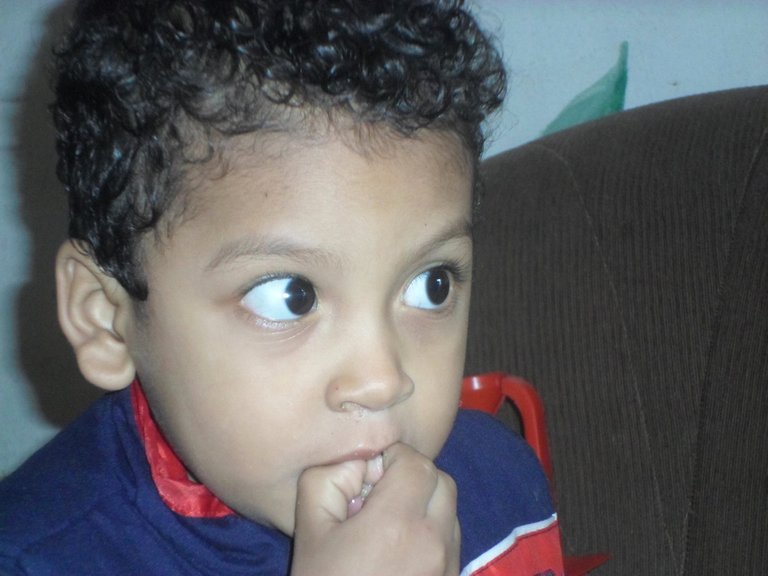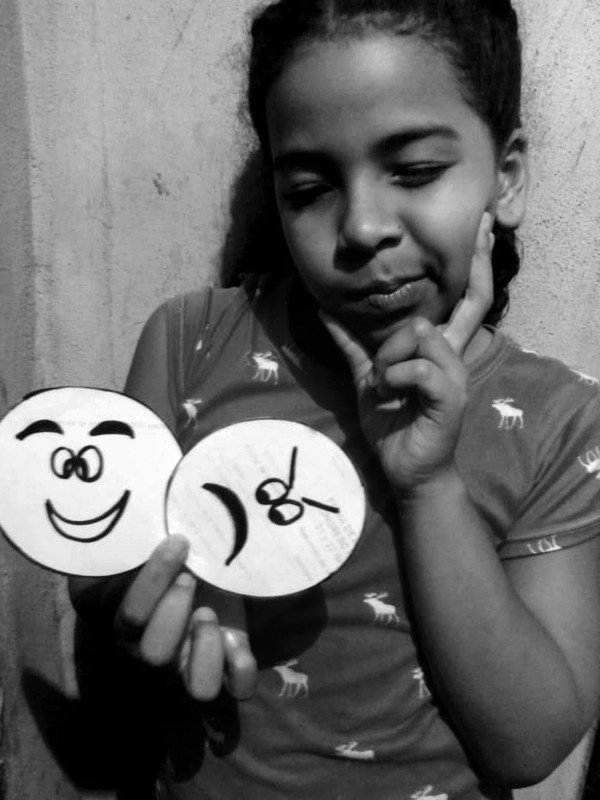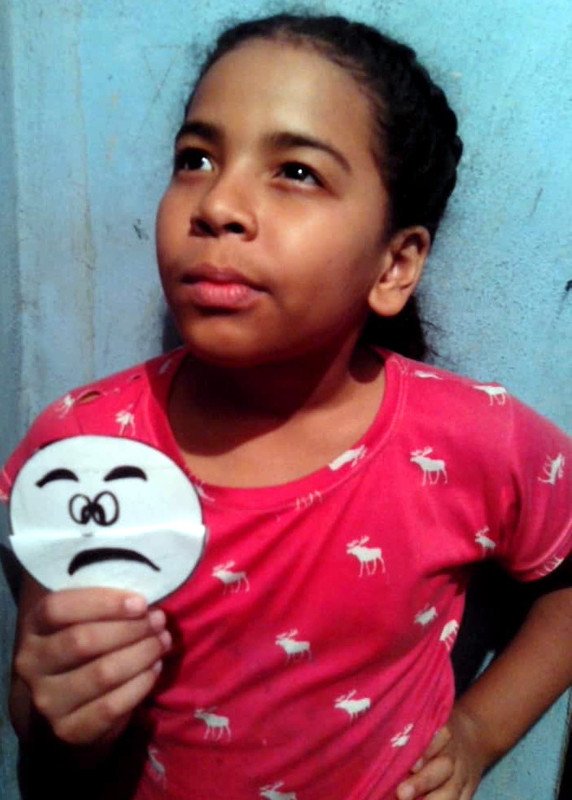
EMOTIONS, AFFECTIONS, FEELINGS, PASSIONS
Saludos Comunidad Hive, Esta semana pasada, a raíz de una actividad en Discord el día jueves, en el Programa Coordenadas de Bienestar en donde la Coach y Facilitadora en Programación Neurolingüística Celsa Perez junto con @miriannalis estuvieron hablando acerca de las emociones me hizo recordar algunas cosas que he venido reflexionando sobre este tema.
Greetings HIVE Community, this past week, as a result of an activity on Discord on Thursday, in the Wellness Coordinates Program where Coach and Neurolinguistic Programming Facilitator Celsa Perez along with @miriannalis were talking about emotions made me remember some things I have been reflecting on this topic.

Uno de los puntos que genera discusión es el de la significación en relación a que son las emociones y que las diferencia de los afectos, los sentimientos, pasiones, estados de ánimo, sensaciones emocionales, entre otros. Mucha de la discusión tiene que ver con el solapamiento cuando se define, se conceptualiza o cuando se habla cotidianamente sobre estos términos. Parte de esa discusión la podemos ver en estos trabajos: Las dificultades y controversias de estudiar la emoción / El estudio socio-histórico de las emociones y los sentimientos en las Ciencias Sociales del siglo XX / Una genealogía de la historia de las emociones
One of the points that generates discussion is the meaning of emotions and what differentiates them from affections, feelings, passions, moods, emotional sensations, among others. Much of the discussion has to do with the overlapping when defining, conceptualizing or talking about these terms on a daily basis. Part of this discussion can be seen in these works: The difficulties and controversies of studying emotion / The socio-historical study of emotions and feelings in the Social Sciences in the 20th century / A genealogy of the history of emotions
En la conversación cotidiana vemos expresiones como: “estoy emocionado, me da mucho sentimiento”, “no estoy de humor”, “tengo una sensación de miedo”, “tengo un afecto de amor hacia ti”. Estas expresiones muestran como estos términos están imbricados al extremo que uno no sabe cuál es la diferencia. Todo esto se complica cuando uno habla por ejemplo del amor. ¿Es un sentimiento? ¿Una pasión? ¿afecto? ¿Es una emoción?
In everyday conversation we see expressions such as: "I am excited, it gives me a lot of feeling", "I am not in the mood", "I have a feeling of fear", "I have a loving affection for you". These expressions show how these terms are imbricated to the extreme that one does not know what the difference is. All this becomes more complicated when one speaks for example of love. ¿Is it a feeling? ¿A passion? ¿an affection? ¿Is it an emotion?

Otras aristas controversiales en cuanto a las emociones están relacionadas en cuanto a si son innatas o aprendidas, si hay emociones básicas y secundarias, qué activa el proceso emocional, si se puede o no reapredender. Todo esto complejiza el estudio de las emociones por lo que han surgido múltiples modelos que dan cuenta de este proceso psicológico que nos permiten aproximarnos a su comprensión.
Other controversial issues regarding emotions are related to whether they are innate or learned, whether there are basic and secondary emotions, what activates the emotional process, and whether or not they can be relearned. All this makes the study of emotions more complex, so multiple models have emerged that account for this psychological process that allow us to approach to its understanding.
Particularmente no veo las emociones como un proceso unitario sino más bien como una parte de un proceso integrado con lo cognitivo, que nos permite interactuar con lo externo y lo interno ante situaciones que tienen algún impacto dentro del polo placer/displacer.
Particularly, I do not see emotions as a unitary process but rather as a part of a process integrated with the cognitive, which allows us to interact with the external and the internal in situations that have some impact within the pleasure/displeasure pole.

In this sense, it would be a dynamic and dialectical cognitive-emotional process, similar to yin and yan. A unit made up of two interrelated parts, complementary opposites, mutually determined. In other words, there is no emotion without cognition and no cognition without emotion. We can exemplify this with the following case: if suddenly there is a strong seismic movement, everything around us moves. Fear invades us. The heart and respiratory rate increases rapidly and we run away.
Todo este proceso sigue la secuencia: percepción del temblor, evaluación cognitiva del evento como una amenaza y reacción de huida del lugar. En este ejemplo un evento externo nos produjo una emoción de miedo pero también puede ser que se produzca desde el interior de nosotros. Podemos pensar acerca de alguna situación agradable. Pensamos en nuestro amor, que vamos a ver en un momento. El corazón palpita con rapidez, una sonrisa nos ilumina el rostro, la alegría nos invade.
This whole process follows the sequence: perception of the tremor, cognitive evaluation of the event as a threat and flight reaction from the place. In this example an external event produced an emotion of fear in us but it can also be produced from within us. We can think about some pleasant situation. We think about our love, which we are going to see in a moment. The heart beats fast, a smile lights up our face, joy invades us.
Por otra parte, pienso que existen emociones innatas que se modifican al pasan por el tamiz social y otras se van construyendo y deconstruyen en el proceso de socialización.
On the other hand, I think that there are innate emotions that are modified when they pass through the social sieve and others are constructed and deconstructed in the process of socialization.

An example of this can be seen in a baby when he hears a loud noise. He immediately bursts into tears. The situation is evaluated as unpleasant. If the mother or father processes this situation for the baby, soothing it with affection, this will not leave an emotional mark. The same happens when the baby is hungry. On the other hand, when he sees his mother cuddling him, he laughs and his face lights up. In the course of his interaction with her, he learns that this cuddling means maternal love, and in the future, these actions will help him to know if the woman who comes into his life is in love with him or not. If the mother transformed those cuddles into blows and scoldings, in the future some similar movement will activate anger or fear in him.
Las emociones entonces son energía en movimiento. Al percibir alguna situación la evaluamos según el polo placer/displacer, esto genera un proceso neurofisiológico en donde se segregan una serie de hormonas que nos preparan para una acción que va a estar determinada en función de la evaluación que hicimos de la situación, de nuestros recursos y del impacto de esta situación en nosotros. Por ejemplo, si entramos a una habitación y vemos una serpiente, nuestro corazón se acelera, aumenta nuestra frecuencia cardiaca, sudamos y corremos. Evaluamos la serpiente como peligrosa y evaluamos que no tenemos defensas ante ella por lo que la decisión es irnos rápidamente. Si vemos a una persona del cual estamos enamorados y la conseguimos de repente, nuestra frecuencia cardiaca y respiratoria aumenta, sudamos y nos acercamos hacia ella. Aunque la reacción fisiológica es la misma los eventos son distintos en función de los significados sociales que hemos ido construyendo en relación al polo placer/displacer. Este polo abarca aspectos que son amenazantes y aspectos que direccionan hacia el bienestar.
Emotions are therefore energy in motion. When we perceive a situation we evaluate it according to the pleasure/displeasure pole, this generates a neurophysiological process where a series of hormones are secreted that prepare us for an action that will be determined according to the evaluation we made of the situation, our resources and the impact of this situation on us. For example, if we enter a room and see a snake, our heart accelerates, our heart rate increases, we sweat and run. We evaluate the snake as dangerous and we evaluate that we have no defenses against it so the decision is to leave quickly. If we see a person we are in love with and we suddenly meet him/her, our heart and respiratory rate increases, we sweat and we approach him/her. Although the physiological reaction is the same, the events are different depending on the social meanings we have built up in relation to the pleasure/displeasure pole. This pole encompasses aspects that are threatening and aspects that lead to well-being.
Las emociones se diferencian de los afectos, sentimientos, pasiones en la duración de la reacción fisiológica (nadie dura con una frecuencia respiratoria o cardiaca alta durante una semana por un evento que lo asustó), en lo automático de su activación, es un proceso que se configura desde lo inconsciente. Los sentimientos, en cambio, son lentos y estamos más consciente de su evolución. Todos estos procesos: emoción, sentimientos, pasiones, afectos, están entrelazados y podemos pasar de uno a otro o incluso sentir varios de estos procesos en un momento determinado.
Emotions differ from affections, feelings, passions in the duration of the physiological reaction (nobody lasts with a high respiratory or cardiac frequency for a week due to an event that frightened him/her), in the automaticness of their activation, it is a process that is configured from the unconscious. Feelings, on the other hand, are slow and we are more aware of their evolution. All these processes: emotion, feelings, passions, affections, are intertwined and we can move from one to another or even feel several of these processes at a given moment.

Bueno amigas y amigos de Hive, este tema es apasionante, complejo y tiene mucha tela que cortar, lamentablemente este espacio es corto por lo que no podemos ahondar más en esta temática. Si quieres que profundice en algunas de las cosas que dije házmelo saber en tus comentarios. Gracias por llegar hasta aquí en la lectura de este post.
Well friends of Hive, this topic is exciting, complex and has a lot of fabric to cut, unfortunately this space is short so we can not delve more into this topic. If you want me to go deeper into some of the things I said let me know in your comments. Thanks for getting this far in reading this post.
Las imágenes son propias y la edité con GIMP y Postimages.
Los separadores fueron editados en Power Point, GIMP y Postimages.
Me gustó tu post , sigues así felicidades :D
Congratulations @psyfire25! You have completed the following achievement on the Hive blockchain and have been rewarded with new badge(s) :
Your next target is to reach 100 replies.
You can view your badges on your board and compare yourself to others in the Ranking
If you no longer want to receive notifications, reply to this comment with the word
STOP